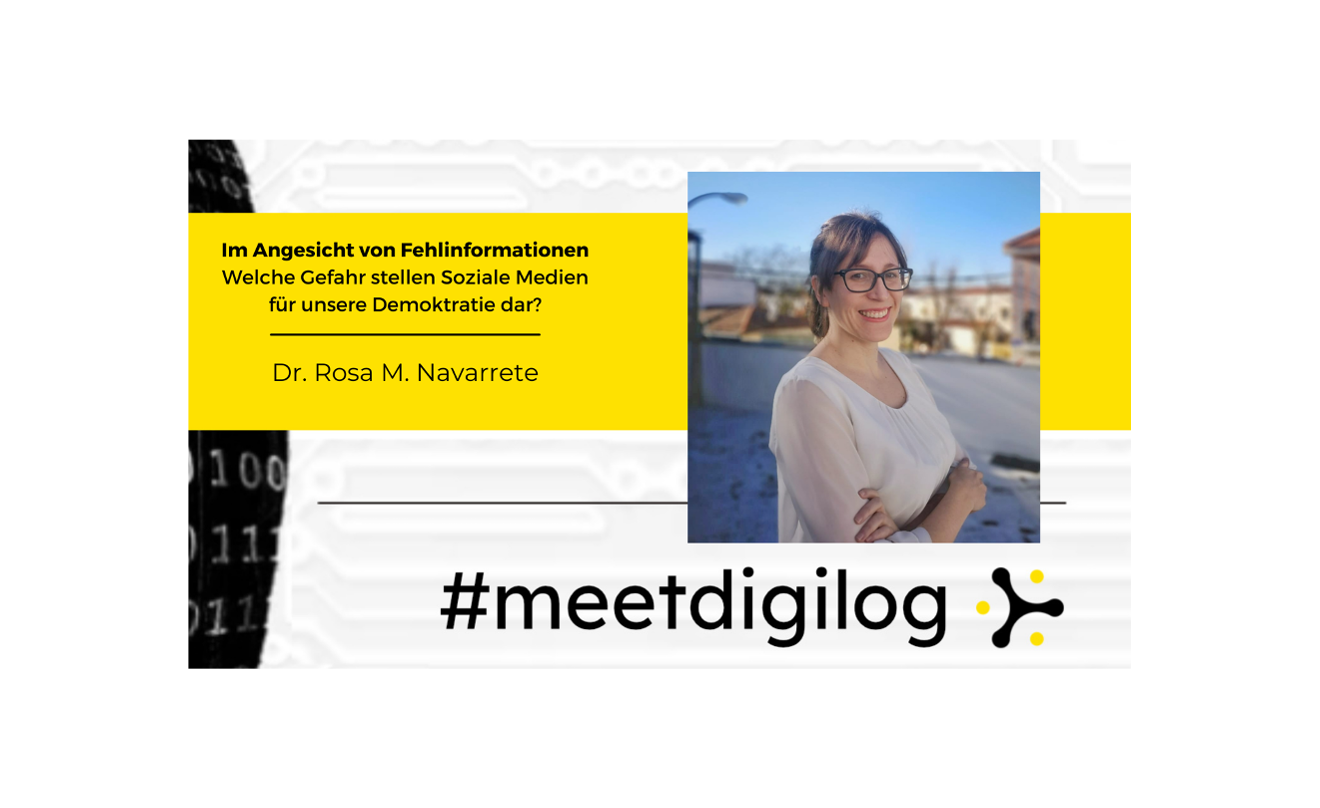#meetdigilog
Facing misinformation
Mon, July 25, 2022 6:00 pm CEST
- Location
- Online
- Language
- English
Can social media destabilize our democracy?
Posts about the attack on the Capitol in Washington on January 6, 2021, messages from deniers of the Corona crisis and false reports on the climate crisis seem to be developing an uncontrollable dynamic through social media. How do filter bubbles and selective information on the web affect us? Dr. Rosa M. Navarrete provides surprising answers and explains her study on the influence of social media on our political thinking.
The spread of misinformation poses a threat to democracy. Just as an example: The electoral fraud narrative spread on social media after the US elections of November 2020, led to the assault of the US Capitol in January 2021. Similarly, during the COVID–19 pandemic, false claims about vaccines, the use of masks or even the existence of the virus were broadcasted online. The absence of a gatekeeper to be held responsible for the quality and veracity of the information contributes to making those using social media more likely to be exposed to inaccurate or simply false content. However, to what extent are citizens aware of this? Do they trust social media as sources of political information? Do they see misinformation as a threat? Do they thinks there are groups or political parties that take advantage and contribute to spreading misinformation online? Using the data from the panel survey digilog@bw–Dynamics of Participation in the Era of Digitalisation, we will discuss these questions and see how the German voters faces misinformation. The 3-wave panel survey contains data on more than 3000 respondents that answered questions about the use of social media and other online platforms as well as questions about their political preferences. The link to the survey is the following: https://doi.org/10.7802/2390
The discussion series #meetdigilog offerns an insight into the digital research topics of our digilog@bw experts.
You are invited to ask questions on Twitter @digilogbw and live during the talk: Instagram–Live.
Exciting articles as well as more expert talks can be found on our blog at digilog@bw.
Guest
Since February 2020, Dr. Rosa Navarrete has been working as a postdoctoral researcher at the MZES in the project digilog@bw–Dynamics of Participation in the Era of Digitalisation. She previously worked as a research associate at the Chair of Comparative Government at the University of Mannheim, as a researcher for the project Democratic Dissatisfaction in Southern Europe: The Political Consequences of the Crisis at the University of York, and as a researcher at the Autonomous University of Madrid. Rosa Navarrete holds a doctoral degree in Social Sciences (Dr. rer. Soc.) from the University of Mannheim. Her research interests are citizens' political and online behavior, public opinion and text-as-data techniques.
Moderation: Sabina Zweil is a research associate in the Department Wissen at ZKM | Karlsruhe. Her field of research is Artificial Intelligence. She is currently working on the research project Digitalisation in Dialogue – digilog@bw.
